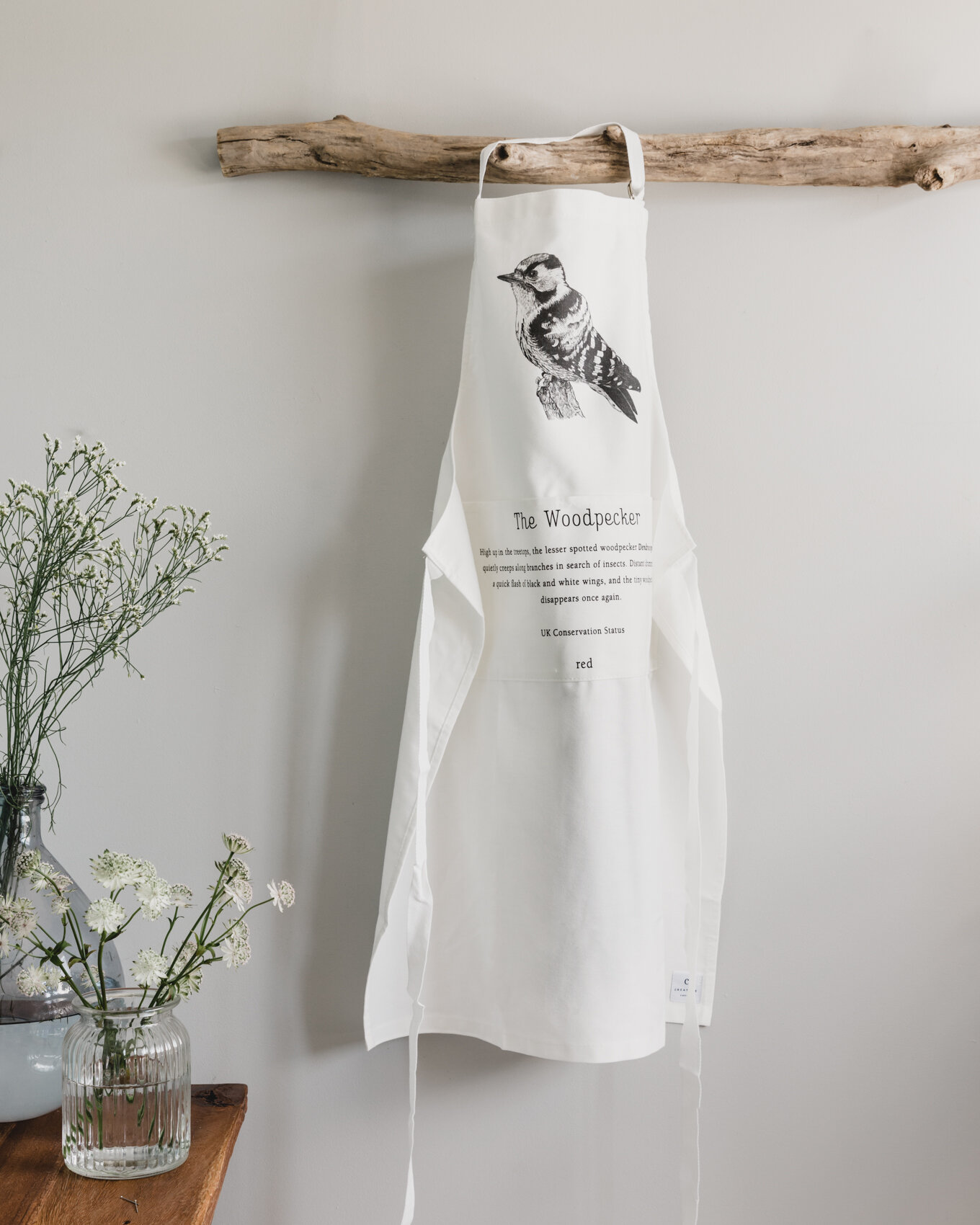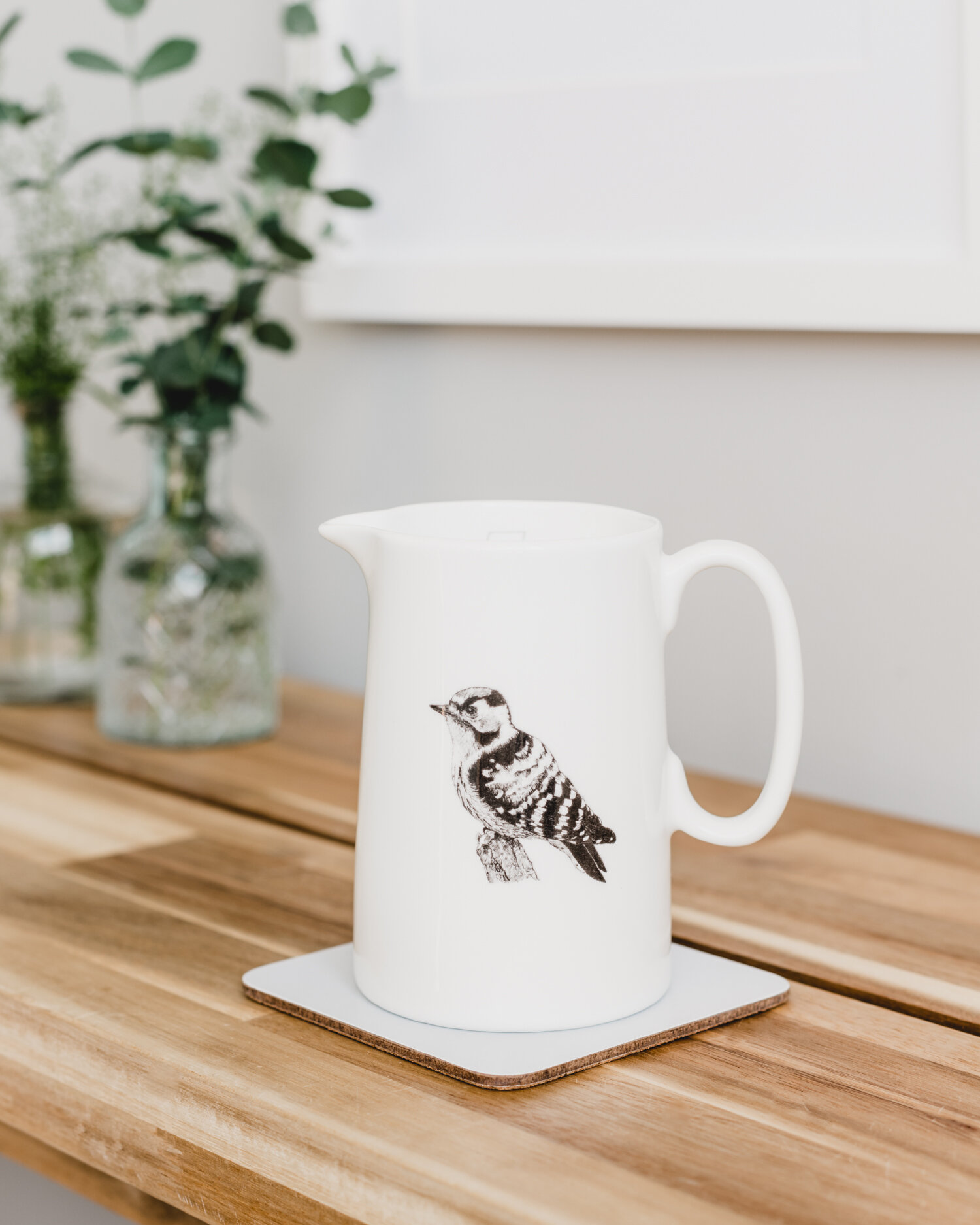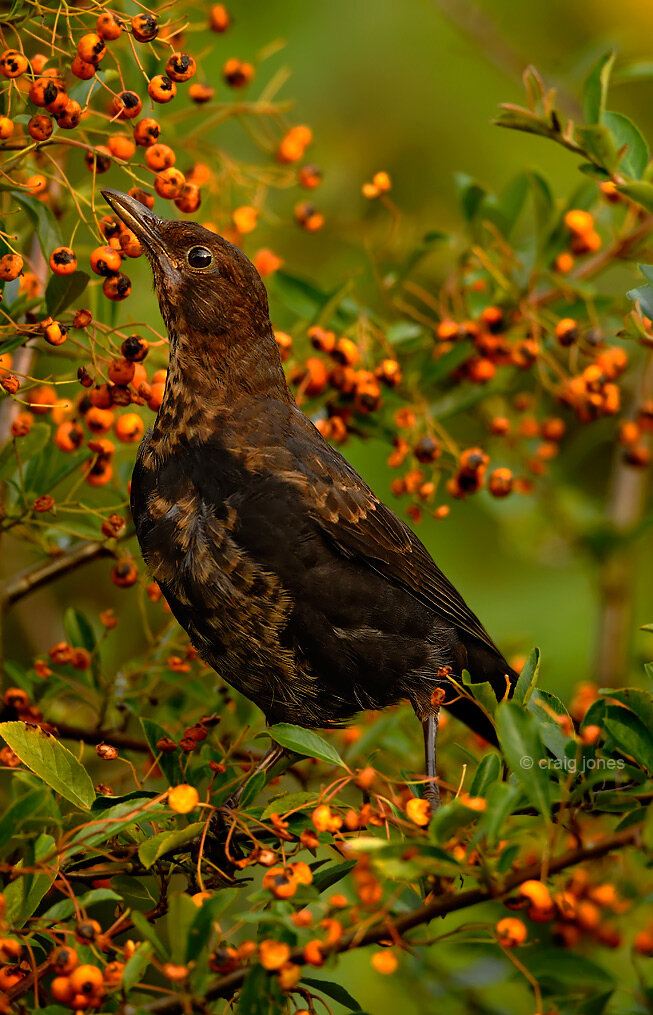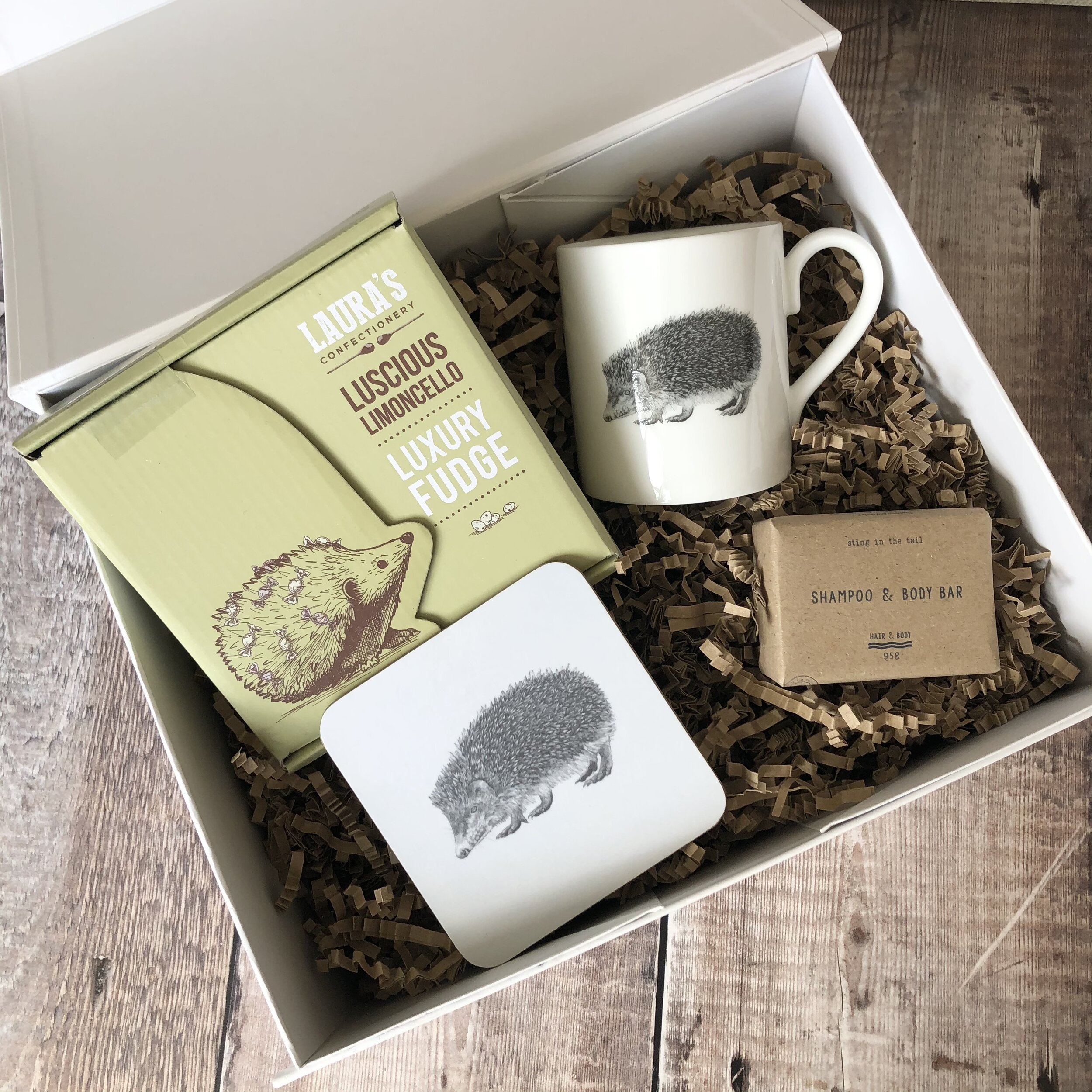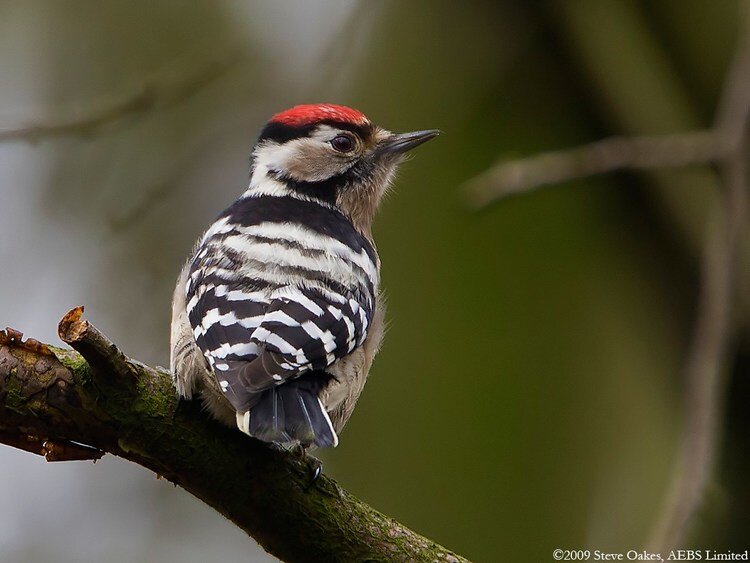
Credit: Steve Oakes, AEBS Limited
Back in 2016 we launched our lesser spotted woodpecker (Dendrocopos minor) range. Many people may not be so familiar with this bird, which is the predominant reason why we chose it - to raise awareness and funds for its much-needed conservation.
If you see a woodpecker in your garden or local park, the chances are it will be a great spotted woodpecker or a green woodpecker. The lesser spotted woodpecker has declined significantly and rapidly since around 1980 and has subsequently disappeared from many of its former localities. In the period of the BTO’s Common Birds Census we lost 60% between 1968 and 1999. The species is now Red Listed, which means it is classified under the highest conservational concern in the UK. There are thought to be only 1500 pairs left in Britain.

By Thermos - Own work, CC BY-SA 2.5.
The species is associated with open woodland, especially oak woods and orchards. Dead trees and decaying branches provide soft timber in which to build nests and search for food. In the UK, the species is mainly limited to the south with the highest density of population occurring in the south-east of England. Lesser spotted woodpeckers do not breed in Scotland or on islands such as the Isle of Wight (although they are found on the Channel Islands), and they are absent from Ireland. In northern England, the lesser spotted is extremely local in Yorkshire, rare in Lancashire and in Wales, scattered pairs occur apart from in the far west.
Most likely causes of this decline? Competition with and predation by great spotted woodpeckers, and reductions in small-diameter dead wood suitable for foraging. The species' large home ranges suggest that landscape-scale changes in woodland (loss of mature broadleaved woodland, losses of non-woodland trees such as elms, and woodland fragmentation) may also be important.
With the sale of all of our lesser spotted woodpecker products, we donate 10% to the British Trust for Ornithology. They use this money to help fund conservation and research projects to help stop the decline of this beautiful species of bird, and make it a more familiar sight within our woodlands.
Have you ever seen a lesser spotted woodpecker? Perhaps you are lucky enough to see them regularly where you live? We'd love to hear from you if you do. Please comment below the blog so we can share this information with others. Thank you!

Humboldt penguins are classed as ‘Vulnerable’ on the IUCN list but are listed as ‘Critically Endangered’ in Peru. There has been a huge overall drop in numbers of the past 100 years, where Humboldts originally were estimated to be in numbers of almost one million and have since dropped to only 30,000 individuals.
One of our new designs is the lesser spotted woodpecker Dendrocopos minor. I'm sure some of you are not very familiar with this bird and that is one the main reasons we have chosen it for our new designs. To raise awareness and funds for it's much needed conservation.




